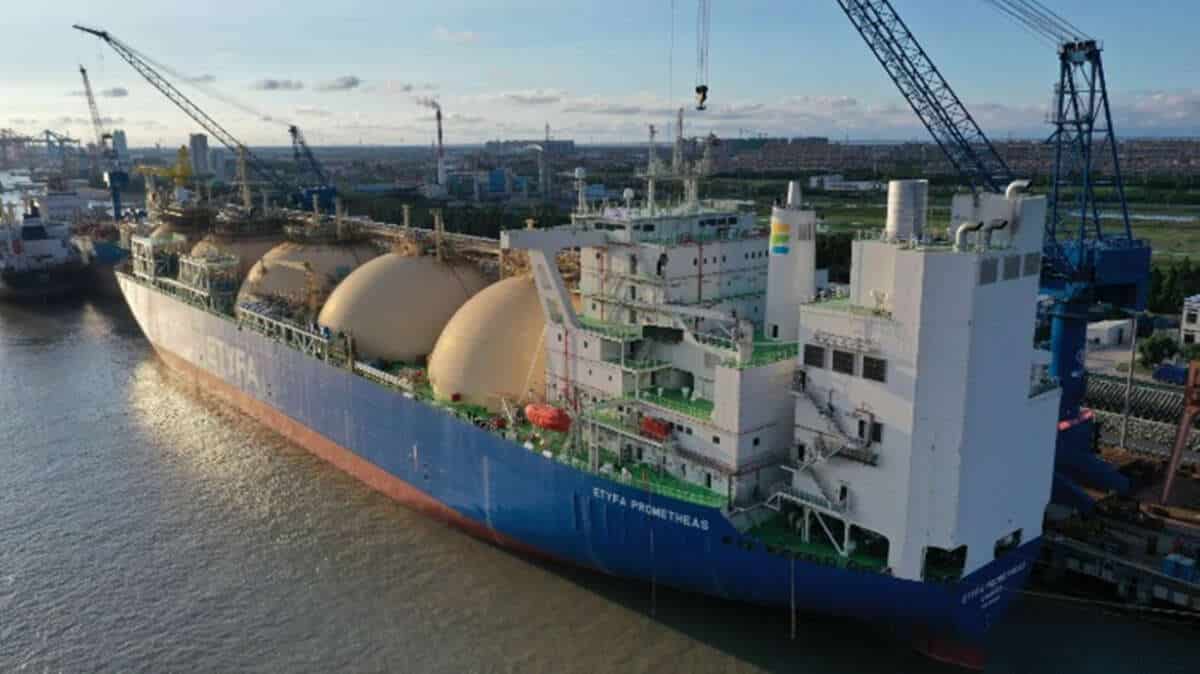The floating, storage and regasification unit (Fsru) is currently moored at the Strait of Malacca, Malaysia, where it’s undergoing technical checks, the energy minister said on Monday.
George Papanastasiou said the vessel – dubbed ‘Prometheas’ – would be checked by an “independent company”.
He added that Cypriot authorities had deliberately picked Malaysia “as there are more available professional services there”.
Malaysia is a stopgap destination. The ship had left Shanghai on December 14, once cleared to set sail after getting certified as a single-voyage LNG carrier.
But it additionally needs to be certified as a storage and regasification unit. To do that, it must dock at an operational terminal to be tested. Since the terminal at Vasiliko in Cyprus is incomplete, the ship will have to dock elsewhere.
Latest reports suggested the port of Alexandroupolis in northeastern Greece may be the likely next destination. It could stay there for about a year, until works are completed at the liquefied natural gas (LNG) terminal at Vasiliko – at which time the vessel can finally come to Cyprus.
The Fsru is a key component and asset of the LNG terminal project. The entire project consists of the Fsru, the onshore facility at Vasiliko and the jetty.
Back in July, the Chinese-led contractor had terminated the LNG contract with Cyprus.
That left Cypriot authorities scrambling to find new subcontractors to finish incomplete works at the onshore facilities and the jetty, while also trying to get the Chinese to release the Fsru from Shanghai.
Also on Monday, the energy minister was asked about the state of play regarding the Cypriot state’s potential equity investment in the Great Sea Interconnector – the holding company for the proposed subsea electricity cable linking Cyprus to Greece.
In early December Papanastasiou had sent a letter to his Greek counterpart Theodoros Skylakakis regarding the reports issued by consultancy firms commissioned by the Cypriot government.
The United States-based firms had noted serious concerns about the Great Sea Interconnector (GSI) and the status of shareholders in it.
GSI is the holding company, or special-purpose vehicle, to implement the project. It is a subsidiary of Admie, Greece’s Independent Power Transmission Operator. Admie is the project owner. Any investors buying into the project would therefore acquire an equity shareholding in GSI.
Papanastasiou said he has yet to receive a response from the Greek minister.
Asked whether the Greek government’s response would determine Nicosia’s decision to participate as a state in GSI, Papanastasiou said the reply would be “important and form part of the assessment for our decision”.
But, he added, Nicosia’s decision would not be determined solely by the Greek government’s response.






Click here to change your cookie preferences